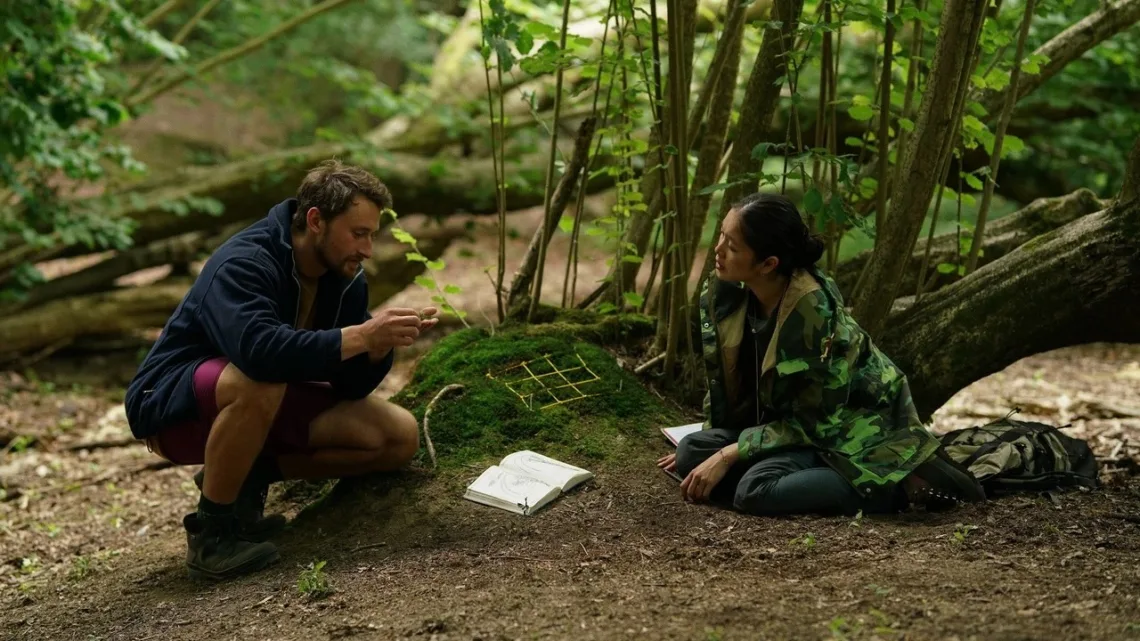The city of Brussels already has a more vivid big-screen legacy than some (it’s the home of one Jeanne Dielman, after all) but it may have found its closest, most devoted and most expansive cinematic chronicler in director Bas Devos. Following the superb 2019 one-two of “Hellhole” and “Ghost Tropic” — respectively, a solemn reflection on urban alienation in the wake of terror attacks and a revelatory nocturnal commute through its unloved fringes — the Belgian capital gets a more summery, sanguine valentine in “Here,” albeit one still preoccupied with the city’s outsiders and outlying attractions. In this case, it’s Brussels’ proximity to the natural world, whether via its parks or communal gardens or overgrown riverbanks, that fascinates Devos — and his two non-native characters, who connect over the unexamined riches of their immediate environment.
At just 84 minutes, with a spare script focused on quiet, open-ended encounters, Devos’s fourth feature is the kind of work that is routinely described, even by admirers, as “miniature,” though it puts forward a broader, more holistic worldview than many bigger-boned arthouse conversation pieces. Adjust your gaze to the director’s more fine-grained perspective and “Here’s” simple gestures become seismic, its images of the everyday — a cowlick of moss weathering an afternoon breeze, a scattering of unidentified brown seeds nestled in a man’s hand, a cast-iron pot of homemade vegetable soup puttering on the stove — imbued with urgent emotional possibility. A deserved winner of the Encounters competition at last year’s Berlinale, this should be the film that vaults Devos to the premier tier of festival-favorite auteurs, one hopes at little cost to his intricately delicate vision.
Popular on Variety Though Devos and his “Ghost Tropic” DP Grimm Vandekerckhove shoot in warmly tactile 16mm, using predominantly natural light, there’s an enflamed, iridescent quality to many of the film’s compositions that feels colored by a determination to see ordinary city sights anew: a tree, a building site, a restaurant window illuminated amid heavy rain. Magic hour occurs at all times of the day in “Here,” and this heightened sensory awareness is shared by characters whose not-unhappy solitude perhaps assists their greater sensitivity to their surroundings.
“This is my home,” murmurs Romanian construction worker Stefan (Stefan Gota) to himself as he surveys his modest high-rise apartment in early-evening half-light, his tone somewhere between marveling and questioning. He takes no space for granted, just as Vandekerckhove’s camera regards the mundane clutter of his kitchen — a dirtied kitchen cutting board, empty Tupperware containers strewn on the counter — as if painting a still-life subject. It has presumably taken Stefan some time to make a home for himself in Brussels, and Devos’s script catches him in a state of uncertainty as to whether he really feels settled there or not. We first encounter him knocking off work before a period of vacation: He’s set to drive to Romania to visit his mother, and isn’t sure when or whether to return.
Cleaning out his fridge for what might be the last time, he resolves to make soup with the leftover vegetables, portioning it out into containers to share with those he’s closest to — a fellow immigrant friend working as a night receptionist in a swanky office block, a Romanian family friend fixing his car, his weary but caring older sister — as he makes his way on foot around the city, saying his maybe-goodbyes. But there are introductions, too. Sheltering from a midsummer storm in a small Chinese diner, he strikes up a shy rapport with Shuxiu (Liyo Gong), a moonlighting waitress who works by day as a bryologist (a botanist specializing in the study of moss) at the local university.
When they bump into each other the next day — this time while Shuxiu is doing field work in a patch of suburban woodland — the coincidence feels as simultaneously natural and otherworldly as everything else in “Here.” After all, Stefan approaches the city without intent or objective: “I wander, I go to places I’ve never been, I see other people wandering, and when I’m tired I go home,” he says of the long rambles that consume his spare time. Tall and burly but endearingly boyish in his thigh-baring shorts, Gatos is completely winning as a man who doesn’t impose his curiosity in the world around him, on the world around him, though his subtle interior illumination upon finding a potential kindred spirit is a joy to see.
In that spirit, Devos’s film gradually becomes an unsentimental paean to the connections and discoveries that emerge when you simply open yourself to what’s around you — animal, vegetable or otherwise. There is something softly radical in its celebration of ceding oneself to one’s environment, and of human interactions that don’t proceed along the usual rules of social exchange, where you needn’t know someone’s name to share an intimate moment with them. In its most seductive moments, “Here’s” complex, layered sound design blocks out the streams of human-generated city noise to isolate the rustle of foliage, the breathy disruptions of wind, the trickle of water somewhere you can’t even see it — reminders of the natural world that endures our most aggressive disruptions, asserting itself through streetscapes and sidewalk cracks, for anyone willing to take notice.

 Italian
Italian







